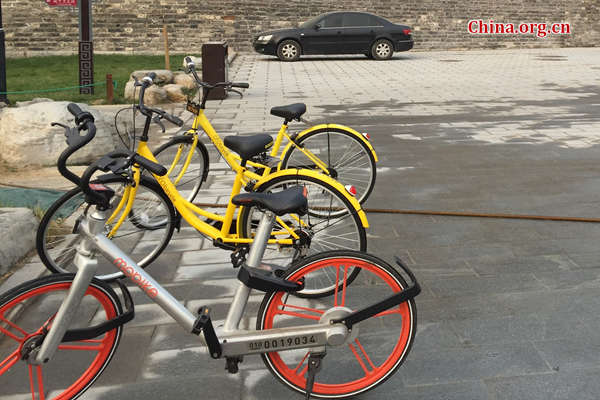Four months before getting his Master’s degree in computer science, Irish student Gareth Lacey got a job offer from a Chinese tech start-up in Beijing’s equivalent of Silicon Valley.
It might not sound like a big deal to a science postgraduate student in Beijing, but the offer did not come easily.
China only recently dropped the work experience requirement for foreign postgraduates, opening a floodgate of opportunities, especially to foreign students pursuing higher education degrees in China.
It had been almost impossible for foreign students to be employed right after graduation. Two years of work experience were mandatory in most cases, Beijing-based foreign students said.
Lacey, who has been studying at Beijing Institute of Technology, will be among the first to benefit.
He described the policy as a “welcome change” for himself and many foreign graduates in similar positions.
According to a January circular issued by Ministry of Human Resources and Social Security, Ministry of Foreign Affairs, and Ministry of Education, foreign students with a postgraduate degree or higher from Chinese or “well-known” foreign universities can be offered employment within a year after graduation.
Applicants should be healthy, have no criminal record, obtain a B grade average (or 80 out of a 100-point scale), have a job offer related to the major of study and with an income no lower than the local average.
Successful applicants will be given a one-year work permit, which can be extended to no more than five at renewal.
Lacey said the Chinese job market is a big draw for foreign job-seekers due to competitive salaries and relatively low living costs.
With its rapid development, China’s market has more to offer foreign job-seekers. Typical jobs for expatriates used to be language teachers, multinational executives, and foreign mission staffers, but the range is widening quickly.
Figures on the number of foreign employees in China are not always available. It was estimated that in the first decade of this century, the number of foreigners working in China grew three times to 220,000, according to the Ministry of Public Security, which oversees immigration affairs.
Lacey said that with the new policy, he suspects there will be a large increase in recent graduates seeking work in China.
“I found it hard to understand in the past that multiple scholarships were offered to foreign students to study in China, but after graduating, they had to leave,” he said.
Chinese universities began aggressively enrolling foreign students in 2010. The amount of scholarships has been increased over the years.
The country aims to become Asia’s top destination for international students by 2020, targeting 500,000 foreign students enrolled per year by then.
The Beijing-based think tank Center for China and Globalization estimates that about 398,000 foreign students came to study in China in 2015.
Wang Ying, director of the international student office under Beijing Institute of Technology, said Beijing’s Zhongguancun hi-tech zone had actually started piloting the policy last year and it was well received.
Postgraduates jumped at the opportunity, Wang said. Last year, his school organized eleven job affairs for international students. Each was full packed. Tech giants like Huawei were among the hiring firms.
“Many of our students were thrilled. They told me they wanted to learn Mandarin and work in China,” Wang said.
The appeal of a Chinese job is not confined to metropolises like Beijing, Shanghai, and Shenzhen.
There is enthusiasm in mid-level and even smaller cities.
Ayaz Ali, a Pakistani Ph.D. candidate studying at Northwest Institute of Eco-Environment and Resources under the Chinese Academy of Sciences, said it was his dream to work in the northwest city of Lanzhou.
Ali said other than participating in the world’s leading cryospheric research, he finds the local culture accommodating to Muslims like him. The province of Gansu, where Lanzhou is located, has a relatively large Muslim population, and Islamic rituals and practices are observed.
Ali said many Pakistani students come to study in China, but until now few have been able to stay on after graduation, which remains a cause of concern among Pakistani students in China.
“After all, it is also very hard to find a good job back home,” he said.
Ma Xiaolei, director of the international student affairs office at Beijing Language and Culture University, said lowering the employment threshold for foreign students serves the strategy to reinvigorate China through human resources development.
He said foreign employees will help Chinese enterprises gain an advantage as they expand overseas, and it is logical for foreign graduates of Chinese universities to put to use what they learn in school.
To open its market, China has also been easing the residence and entry policies for foreigners.
Last year, 1,576 foreigners obtained permanent residence in China, rising 163 percent over the previous year. Foreigners with permanent residence will enjoy the same rights as Chinese citizens in areas such as investment, housing purchases and schooling, among other rights.
![Bike-sharing reinvigorates manufacturers [Xinhua] Bike-sharing reinvigorates manufacturers [Xinhua]](http://images.china.cn/attachement/jpg/site1007/20170329/b8aeed9906a71a4568a80e.jpg)

